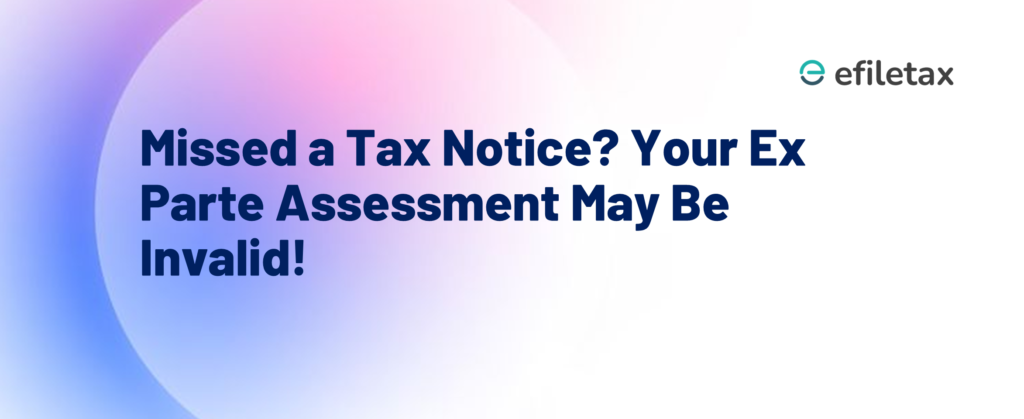
Introduction
Ex parte tax assessment orders can seriously impact a taxpayer’s rights. Recently, a High Court set aside an ex parte order because improper service of notice violated the principles of natural justice. In this blog, we break down what went wrong, why it matters, and how you can protect yourself during tax proceedings.
What Is an Ex Parte Assessment?
An ex parte assessment is when the tax officer passes an order without hearing the taxpayer, usually because the taxpayer did not respond to notices.
But – and this is critical – proper service of notice is mandatory before moving ahead ex parte. If notice is not correctly served, the entire assessment can be legally challenged.
The Case: Procedural Defect Leads to Invalidation
Facts in Short:
- The Assessing Officer issued a notice but served it incorrectly.
- The taxpayer never got a fair chance to respond.
- The High Court ruled that this violated the principles of natural justice.
- The entire assessment order was set aside.
Natural Justice in Tax Law: Why It Matters
Natural justice is not a luxury; it is a legal right.
In tax matters, it mainly means:
- Proper notice must be given.
- Opportunity to be heard must be real, not fake.
Without these, any order — even if factually correct — can be quashed by a court.
Impact for Indian Taxpayers
| Situation | Outcome |
|---|---|
| Proper notice not served | Assessment can be set aside |
| Taxpayer ignored valid notice | Assessment stands |
| Procedural defect proved | Court protects taxpayer |